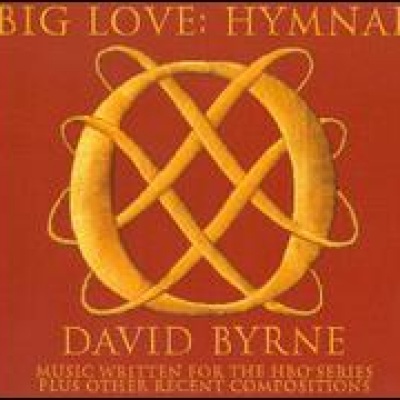
Big Love: Hymnal
by Thom Jurek Simply put, Big Love: Hymnal is exactly what its title and subtitle -- Music Written for the HBO Series Plus Other Compositions -- claim it to be: serial music to accompany the various episodes from the second season of the cable show that stars Bill Paxton. Devo's Mark Mothersbaugh wrote the first season -- and let's just say that in his own contribution, David Byrne is really aware of that fact. Byrne claims he wanted to write a series of "fake" Mormon hymns to accompany the many themes that characters encounter and express, from devotion to jealousy, anger, and betrayal. He initially wrote a number of these grand gestures without seeing a frame of the season's pictures, but they ended up not being used -- even though he would have allowed the series' producers to slice and dice them any way they wished. Byrne claims that's just as well, and punters can decide for themselves since he's included a number of them here as bonus tracks (though you'll have to figure out what's what for yourself because the super budget HBO CD package doesn't designate them). Byrne fans will no doubt recognize many of the same tropes he's employed since True Stories. These are mostly clever, short cues, with skeletal organic percussion and electronic drum loops, piano, analog synth, electric and acoustic guitars, bass, a string quartet, and, on some tracks, flügelhorn and French and baritone horns -- those tracks more than likely are the fake hymns. As a total listening experience, this set feels a bit precious. One is painfully aware throughout that this is music to be accompanied by images, and its saturated more or less with rather churchy and often rural themes. It's pleasant for a while, but lightweight, and yet feels like every one of its 41 minutes. Back to Mothersbaugh: Byrne does nod to his peer on some of the quirkier offerings like "A Hill in Ontario County," with its vibes and counterpoint piano lines that have been evocative on Mothersbaugh's own work in film and television as well as on Muzik for Insomniaks. Elsewhere, the contrast of sounds, such as those on the synth and drum machine pastiche that forms the core of "Deep Water," is underscored by electric guitars and a rather polka-like bassline to offer a kind of winking grin that this is supposed to be humorous. The subtly shifting timbres in "Murmur Not" are among the most beautiful on the set, where nocturnal keyboards and glockenspiel are wedded to deep unidentifiable bass effects, strings, and a gorgeous cascading woodwind sound. The bottom line? You either have to be a Byrne enthusiast (or perhaps a bit of a fanatic) to find this set of compositions engaging in its own right, or addicted to very specifically themed cinematically inspired music, to truly appreciate what's on offer here. One does have to wonder, however: if it weren't Byrne who scored this set, but someone of lesser renown, would this disc have been released at all?
